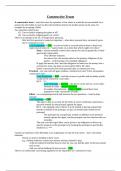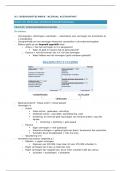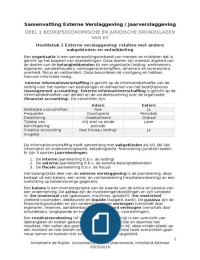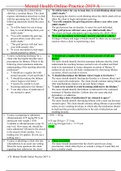A constructive trust = trust that arises by operation of law where it would be unconscionable for a
person (A) who holds an asset to deny the beneficial interest of another person in the asset, for
example by accepting a bribe.
Two questions which arise:
(1) Can we justify stripping the gains at all?
(2) Can we justify stripping gains via a trust?
There is an attempt in the CL to merge these questions.
Only the first question is treated as important – when have personal duty, necessarily gives
rise to constructive trust.
Lord Templeman in Reid – as soon as bribe is received and has duty to hand over,
equity maxim steps in – “equity looks on as done that which ought to be done.”
Issue = maxim normally comes from contract for sale of goods/sale of land –
specifically enforceable.
Very different situation.
In contract law, this maxim refers to the primary obligation of the
parties – in Reid using it for remedial obligation.
If apply the maxim, don’t turn the obligation to hand over the money into a
constructive trust; one does not necessarily follow the other.
Doesn’t necessarily flow from personal duty to constructive trust.
Practical – can you reach all gains without a constructive trust? If not, necessitates
constructive trust.
Lord Templeman in Reid – said that increase in profits and secondary profits
would not be reached by court order.
BUT – ***
Lord Neuberger in Sinclair – the above can be met by a court order.
Increase in value – Keech v Sandford
Secondary (investments) – Lister v Stubbs (would have been
prepared to order conveyance of land).
Effect = no conceptual/practical link between the two questions – must be kept
separate.
Lord Neuberger in FHR –
The agent’s duty to account for the bribe or secret commission represents a
personal remedy for the principal against the agent.
BUT – the equitable rule is that he is to be treated as having acquired the
benefit on behalf of his principal, so that it is beneficially owned by the
principal.
The principal has a proprietary remedy in addition to his personal
remedy against the agent, and the principal can elect between the two
remedies.
The only way that legal effect can be given to an obligation to deliver up
specific property to the principal is by treating the principal as specifically
entitled to it. ***
Cannot use intention of the defendant as an explanation of why the trust arises – don’t care about
intention.
Clearly no trust is intended in these cases.
e.g., without authority A takes trust money and buys himself a boat.
A did not intend to hold that boat on trust for you, nor did the seller of the boat intend
such a trust.
And yet, end up holding the boat on trust – FHR.
There is no sufficiently convincing argument for the imposition of a constructive trust.











